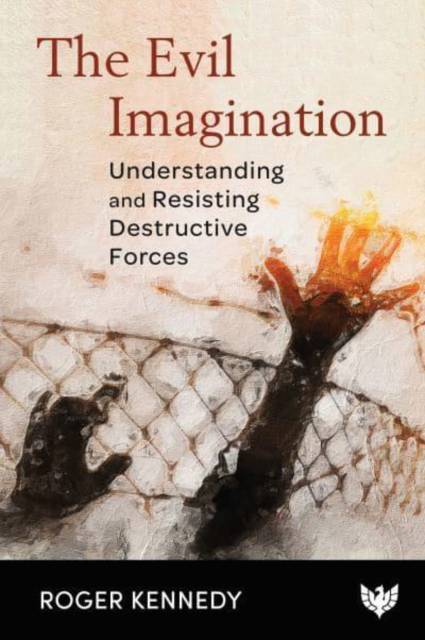
- Afhalen na 1 uur in een winkel met voorraad
- Gratis thuislevering in België vanaf € 30
- Ruim aanbod met 7 miljoen producten
- Afhalen na 1 uur in een winkel met voorraad
- Gratis thuislevering in België vanaf € 30
- Ruim aanbod met 7 miljoen producten
Zoeken
The Evil Imagination
Understanding and Resisting Destructive Forces
Roger Kennedy
Paperback | Engels
€ 44,95
+ 89 punten
Omschrijving
Roger Kennedy has written a masterful investigation into the concept of evil. He begins with a general view of the subject before moving into more detailed analysis. First is a review of the science of evil, including evidence from neuroscience and social psychology. This is followed by psychoanalytical studies of the individual and groups before presenting an overview of the philosophy of evil. Also included are historical and social studies which inform an understanding of evil in action. Kennedy goes on to examine the nature of genocide using a main focus on the Holocaust and of slavery. Both of these "journeys to evil" remain relevant for understanding contemporary society and issues. The Nazi past continues to disturb and resonate decades on. The politics and social fabric of Western society was reliant on slavery as a foundation of economic wealth and is haunted by its inability to process the harsh reality of slavery and its continuing after-effects. Kennedy moves from there to a discussion on the genius of Shakespeare and his encapsulation of the essential features of how evil can develop and take over a person's inner world. The book concludes with a summary of the main themes and a look at those who have resisted evil and what we can learn from them if we are to build a society that can resist the forces of evil. The book is informed by a psychoanalytic approach, with its emphasis on the power and influence of unconscious processes underlying human actions, and on the role of inner conflicting and elemental fears and anxieties often driving individual and group behaviours. It brings fresh insight to an eternal discourse.
Specificaties
Betrokkenen
- Auteur(s):
- Uitgeverij:
Inhoud
- Aantal bladzijden:
- 236
- Taal:
- Engels
Eigenschappen
- Productcode (EAN):
- 9781912691296
- Verschijningsdatum:
- 17/11/2022
- Uitvoering:
- Paperback
- Formaat:
- Trade paperback (VS)
- Afmetingen:
- 152 mm x 228 mm
- Gewicht:
- 399 g

Alleen bij Standaard Boekhandel
+ 89 punten op je klantenkaart van Standaard Boekhandel
Beoordelingen
We publiceren alleen reviews die voldoen aan de voorwaarden voor reviews. Bekijk onze voorwaarden voor reviews.











